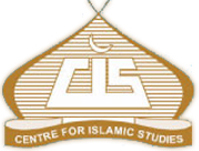Karen Armstrong has written histories of Buddhism and Islam. She has written a history of myth. She has written a history of God. Born in Britain, Armstrong studied English at xbrief detour toward hard-line atheism. During that period, she produced writing that, as she later described it, “tended to the Dawkinsesque.”
Since then, Armstrong has emerged as one of the most popular — and prolific — writers on religion. Her works are densely researched, broadly imagined and imbued with a sympathetic curiosity. They deal with cosmic topics, but they’re accessible enough that you might (just to give a personal example) spend 15 minutes discussing Armstrong books with a dental hygienist in the midst of a routine cleaning.
In her new book, “Fields of Blood,” Armstrong lays out a history of religious violence, beginning in ancient Sumer and stretching into the 21st century. Most writers would — wisely — avoid that kind of breadth. Armstrong harnesses it to a larger thesis. She suggests that when people in the West dismiss violence as a backward byproduct of religion, they’re being lazy and self-serving. Blaming religion, Armstrong argues, allows Westerners to ignore the essential role that violence has played in the formation of our own societies — and the essential role that our societies have played in seeding violence abroad.
Reached by phone in New York, Armstrong spoke with Salon about nationalism, Sept. 11 and the links between anti-Semitism and Islamophobia.
Over the course of your career, you’ve developed something of a reputation as an apologist for religion. Is that a fair characterization? If so, why do you think faith needs defenders?
I don’t like the term “apologist.” The word “apologia” in Latin meant giving a rational explanation for something, not saying that you’re sorry for something. I’m not apologizing for religion in that derogatory sense.
After I left my convent I thought, “I’ve had it with religion, completely had it,” and I only fell into this by sheer accident after a series of career disasters. My encounters with other faith traditions showed me first how parochial my original understanding of religion had been, and secondly made me see my own faith in a different way. All the faith traditions have their own particular genius, but they also all have their own particular flaws or failings, because we are humans and we have a fabulous ability to foul things up.
…
When you hear, for example, Sam Harris and Bill Maher recently arguing that there’s something inherently violent about Islam — Sam Harris said something like “Islam is the motherlode of bad ideas” — when you hear something like that, how do you respond?
It fills me with despair, because this is the sort of talk that led to the concentration camps in Europe. This is the kind of thing people were saying about Jews in the 1930s and ’40s in Europe.
This is how I got into this, not because I’m dying to apologize, as you say, for religion, or because I’m filled with love and sympathy and kindness for all beings including Muslims — no. I’m filled with a sense of dread. We pride ourselves so much on our fairness and our toleration, and yet we’ve been guilty of great wrongs. Germany was one of the most cultivated countries in Europe; it was one of the leading players in the Enlightenment, and yet we discovered that a concentration camp can exist within the same vicinity as a university.
There has always been this hard edge in modernity. John Locke, apostle of toleration, said the liberal state could under no circumstances tolerate the presence of either Catholics or Muslims. Locke also said that a master had absolute and despotical power over a slave, which included the right to kill him at any time.
That was the attitude that we British and French colonists took to the colonies, that these people didn’t have the same rights as us. I hear that same disdain in Sam Harris, and it fills me with a sense of dread and despair.
Is Islamophobia today comparable to anti-Semitism?
Let’s hope not. It’s deeply enshrined in Western culture. It goes right back to the Crusades, and the two victims of the crusaders were the Jews in Europe and the Muslims in the Middle East.
Right, because Jews along the crusaders’ routes would be massacred —
They became associated in the European mind. We’ve recoiled, quite rightly, from our anti-Semitism, but we still have not recoiled from our Islamophobia. That has remained. It’s also very easy to hate people we’ve wronged. If you wrong somebody there’s a huge sense of resentment and distress. That is there, and that is part of it, too.
I remember speaking at NATO once, and a German high officer of NATO got up and spoke of the Turks resident in Germany, the migrant workers who do the work, basically, that Germans don’t want to do. He said, “Look, I don’t want to see these people. They must eat in their own restaurants. I don’t want to see them, they must disappear. I don’t want to see them in the streets in their distinctive dress, I don’t want to seem their special restaurants, I don’t want to see them.” I said, “Look, after what happened in Germany in the 1930s, we cannot talk like that, as Europeans, about people disappearing.”
Similarly, a Dutch person got up and said, “This is my culture, and these migrants are destroying and undermining our cultural achievements.” I said, “Now you, as the Netherlands, a former imperial power, are beginning to get a pinprick of the pain that happened when we went into these countries and changed them forever. They’re with us now because we went to them first; this is just the next stage of colonization. We made those countries impossible to live in, so here they are now with us.”
 Center for Islamic Studies CIS
Center for Islamic Studies CIS
